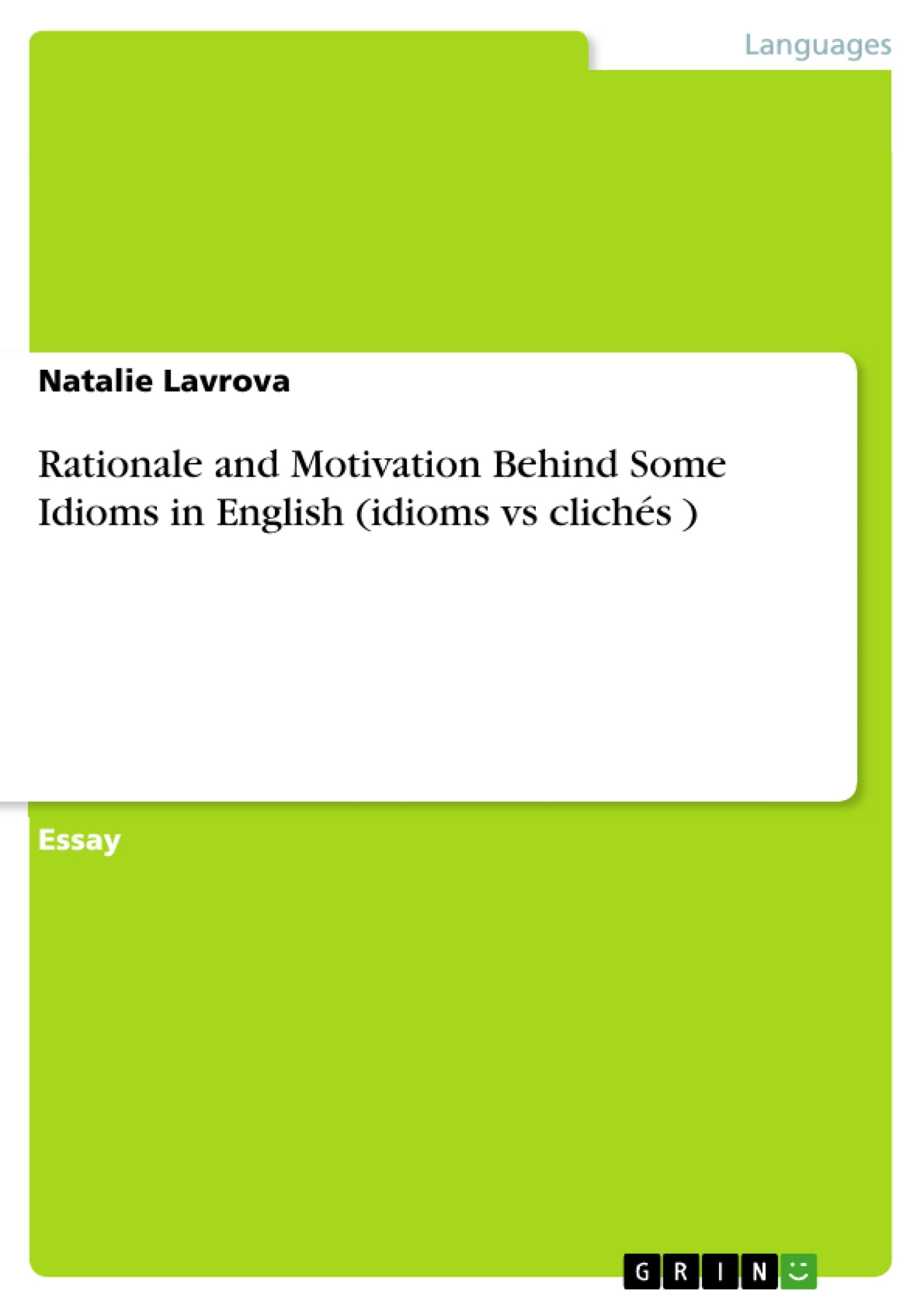The article is aimed at differentiating between an idiom and a cliche. It also illustrates some of the frequently used English idioms that require the knowledge of the Bible or fables or Greek mythology. It is arguable that clichés and idioms make speech more automatic and increase the tempo of communication, in fact, recollecting some of the clichés and idioms may be quite time-consuming and not always justified from pragmatic point of view. Without a proper knowledge of English idioms and clichés, however, a non-native speaker of English cannot be qualified as an advanced learner, for they are an integral part of any language and their pertinent usage is a hallmark of genuine proficiency.
Lavrova N.A.
Rationale and Motivation Behind Some Idioms in English
(idioms vs clichés )
Frequently asked questions
What is the main focus of Lavrova N.A.'s text concerning idioms?
The text primarily focuses on the distinction between idioms and clichés in the English language, analyzing different perspectives on what constitutes an idiom and contrasting it with the concept of a cliché.
How does Lavrova N.A. critique Cresswell's definition of idioms and clichés?
Lavrova challenges Cresswell's assertion that idioms are distinguishable by their "transparency of meaning," arguing that understanding varies among speakers, regardless of native language status. Lavrova also disputes that native speakers universally understand all idioms, emphasizing the influence of background knowledge.
What is Lavrova's counter-argument regarding the understandability of idioms versus clichés?
Lavrova posits that clichés are more readily understood by native speakers due to their reliance on commonplace metaphors, which contradicts Cresswell's claim. She also argues that clichés being overused and lacking expressive force, as dictionaries state, is not consistent with native speakers misunderstanding them.
How are idioms and clichés defined in the text?
The text references A.V. Koonin's definition of an idiom as an expression of at least two words with a transferred meaning based on metaphor. A cliché is defined, using the Longman Dictionary of English Language and Culture, as an expression or idea that has lost its expressive force due to overuse.
What is the significance of metaphoricity in distinguishing idioms from set expressions, according to I.V. Arnold?
I.V. Arnold suggests that idioms are based on metaphor, potentially hindering understanding, while set expressions are collocations where one word predictably "attracts" another, with varying degrees of certainty.
- Citation du texte
- Natalie Lavrova (Auteur), 2010, Rationale and Motivation Behind Some Idioms in English (idioms vs clichés ), Munich, GRIN Verlag, https://www.grin.com/document/151439



